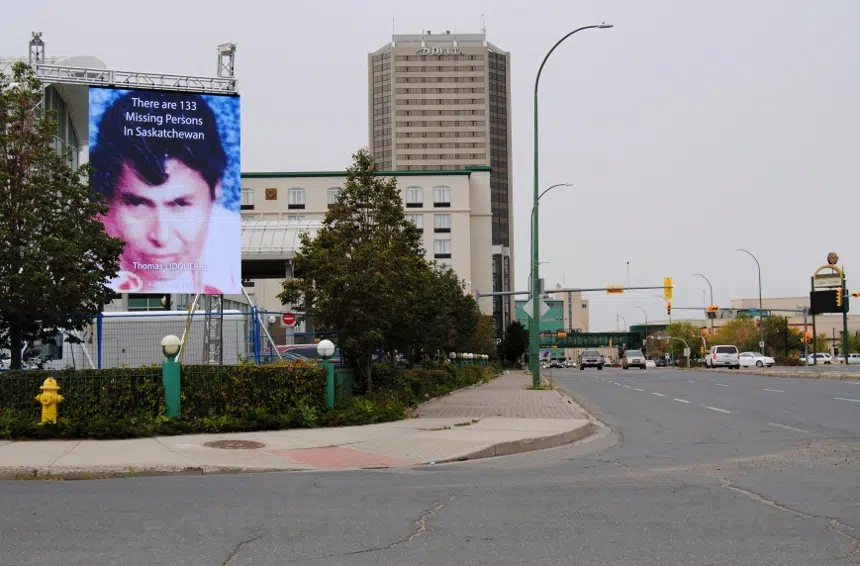A family member going missing just isn’t quite the same as a family member dying, according to Dwayne Yasinowski.
He’s the director of education with Caring Hearts Saskatchewan, which is one of the resources that can be accessed by people with missing family members.
The loss experienced by families of the missing is called “ambiguous loss.” Yasinowski said it’s a relatively new field, which means there aren’t that many who specialize in it.
“There haven’t been a lot of people that have really stepped into it, per se, and officially call it missing person work. They do trauma and they do grief work, which is all very valuable and a part of missing person work when you’re working with a family or individual, but they haven’t dubbed it ‘ambiguous loss counselling’ and specifically focused on the ambiguity of the missing.”
In Saskatchewan, there are only a few counsellors with ambiguous loss as a focus, along with some elders in the province who practise traditional healing in that direction.
There are 133 long-term missing people in the province, so that’s a big workload for only a few people.
“Without a doubt, there’s a need,” said Yasinowski.
The needs around ambiguous loss can be different than grief for a number of reasons. Yasinowski said when a family members dies, there’s some closure.
“The family’s suffering but they know that their loved one isn’t, so their minds don’t race around creating situations. Whereas with a missing person, there’s always that ambiguity. There’s always that, ‘I don’t know where my loved one is,’ ” explained Yasinowski.
He said when there are those questions, the mind takes you to the worst-case scenario, so trauma is continual.
Yasinowski also said families of the missing will live in dual realities where they plan their normal life, but they also plan for the missing person to be back home.
“Many times families will plan what their Thanksgiving may look like with their loved one home with them, because that’s where their heart is going,” he said. “Their heart is going, ‘They’re going to be back with us. I want them back.’ “
Yasinowski said a counsellor trained in ambiguous loss would know about and expect these kinds of reactions and know the best way to deal with them without doing harm.
Rhonda Fiddler is the missing persons liaison with victims’ services at the Regina Police Service. She said there needs to be a lot more support for families of the missing, and one of the biggest things is counselling.
She said with dozens of families needing help, there are only a few experienced in that kind of help.
“What it means is the counsellors we do have are exhausted,” said Fiddler.
Counsellors have travelled to the families, if needed, and have gone all across the province.
Fiddler said part of the challenge is that counselling could be needed for years for these families, potentially until the family member is found.
Caring Hearts is the first organization doing this kind of work in Saskatchewan, though Yasinowski does acknowledge there have been elders in the province helping families of missing and murdered Indigenous women and girls for a while.
Yasinowski said it’s starting to get better. He explained more counsellors are seeing this specialty and learning about it. There are also organizations getting training in ambiguous loss from Caring Hearts, like community groups and police services.
Yasinowski said his organization is also training some volunteers and trying to set up support groups for those families as well.
“There’s need for more, definitely. There’s need for more work, there’s need for more study, there’s need for more training, but it’s coming. It’s further ahead than it was three or four years ago,” said Yasinowski.







